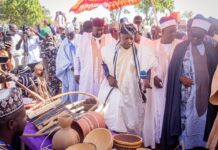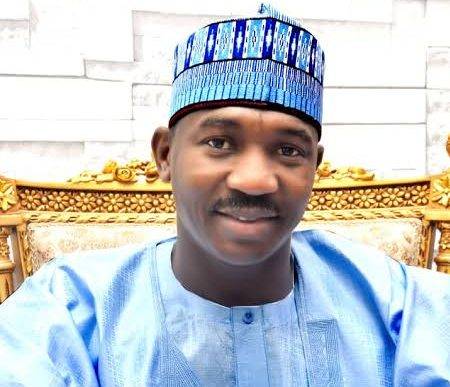 Today is the first anniversary of the Dana crash that led to the unnecessary death of so many people, victims of an aviation industry that has been incapable of imposing safety standards in an industry where safety is of such paramount importance. The story of our aviation industry is of course a much larger story of a state that has been incapable of assuring the safety of citizens in general from religious extremists and insurgents, armed robbers, ethnic bigots and resource control militants. The Dana crash, like similar ones before it was a sad one for those of us who are members of the Nigerian elite. I lost a cousin, a daughter to a close friend and a colleague from the office, Alvana Ojukwu. Alvana was a bright young lawyer who was totally committed to her job in the Centre for Democracy and Development (CDD) of improving the conditions of women. As the programme officer in charge of gender in the organisation, she was always on the forefront of devising programmes that can lead to positive change for women. Today, we mourn all these people of great promise that we lost in the crash.
Today is the first anniversary of the Dana crash that led to the unnecessary death of so many people, victims of an aviation industry that has been incapable of imposing safety standards in an industry where safety is of such paramount importance. The story of our aviation industry is of course a much larger story of a state that has been incapable of assuring the safety of citizens in general from religious extremists and insurgents, armed robbers, ethnic bigots and resource control militants. The Dana crash, like similar ones before it was a sad one for those of us who are members of the Nigerian elite. I lost a cousin, a daughter to a close friend and a colleague from the office, Alvana Ojukwu. Alvana was a bright young lawyer who was totally committed to her job in the Centre for Democracy and Development (CDD) of improving the conditions of women. As the programme officer in charge of gender in the organisation, she was always on the forefront of devising programmes that can lead to positive change for women. Today, we mourn all these people of great promise that we lost in the crash.
Last week, I participated in a planning meeting in Accra of West Africa civil society leaders. It was an occasion to reflect on what civil society and communities could do to rebuild states and society in a context in which governments appear incapable of seeking solutions to mounting problems confronting the region. The objective was to organise an annual convening, jointly organized by the West African Civil Society Institute (WACSI) and the West African Civil Society Forum (WACSOF) to create a permanent platform where the regional civil society constituency, in all its heterogeneity, comes together to develop an agenda for action towards addressing the multifarious challenges confronted with in the region. The people must now take leadership in the struggle for the attainment of a West Africa where peace, economic integration and human development become a reality.
Our situational analysis of key challenges facing West Africa today revealed the following. The failure of governments to provide for the welfare of people has led to the crumbling of social cohesion and the deterioration of our social fabric at a time in which the state is losing control of the monopoly of the use of force. Indeed, guaranteeing the security of citizens has become an impossible task to most West Africa States. Cashing in on the vacuum, new forces are emerging, leading to the exacerbation of the crises. These include fundamentalist groups challenging the sovereignty and territorial integrity of certain states through insurgency, narco-traffickers colluding with elements in power to take over certain states transforming them into “Narco-States”, and political entrepreneurs promoting a crisis over citizenship that excludes parts of the community. This situation is largely fuelled by the abuse of the powers of incumbency by many political leaders engaged in mega corruption and seeking to imbue their rule with monarchical powers. So many political leaders in the region are blind to the prevailing reality and focused on remaining in power for the rest of their lives and scheming to ensure that their children succeed them after their demise. West African civil society must therefore rise to create a path towards political renewal and the deepening of democracy.
Emerging challenges against national sovereignty, territorial integrity, the porosity of national borders, drug and human trafficking, religious fundamentalism and insurgent terrorism have been plaguing Mali. The forthcoming presidential and legislative elections are now compromised by insecurity, especially in some areas of North Mali that are still under the law of the insurgents. The West under the leadership of France is insisting on early elections as a tactic to vacate their soldiers and as the crisis unfolds, no priority is being given to long term peace building.
The security situation in Nigeria continues to deteriorate in the face of the prolonged armed insurgency in its North-east region. Prospects for resolution are gloomy as the government persists on its adoption of a hard-line counter-insurgency response to an undefined crisis that has degenerated to gross human rights abuses by state security agents and militants alike. Nigeria’s 2015 elections may be in jeopardy if the crisis is not solved soon.
Niger has become a high risk country, as it shares borders with countries that are in deep crises, namely Libya, Mali and Nigeria. It is a bridge that could link the on-going insurgencies in Mali and Nigeria. Over the past two weeks, insurgents from Mali have moved into Niger where they have started attacks. This weekend, there was an attempted break out by Boko Haram insurgents in Niamey prison. There is need for concerted action to ensure that Niger does not turn into a spring board for international terrorism and wholesale illicit activity which will worsen the security situation and compromise the territorial integrity of countries in the region.
The complex crisis in Guinea Bissau which has become a “Narco-State” where the army high command has refused to allow democracy to function continues to deteriorate. The situation is further compounded by the fact that UN, the EU, the ECOWAS, and the community of Lusophone countries are yet to come up with a shared vision for the resolution of the crisis. The situation is bleak and the likelihood of stability and any prospect of preventing the State’s collapse appears unrealistic.
In Guinea Conakry, legislative elections have not been held since 2011 when the president took office. This tense situation has led to mounting cynicism, mistrust and a growing violent clashes at a time when consensus has not been reached around the modalities for the preparation of the elections, the composition and functioning of the national election commission, but also around the date on which elections are to be held.
In Togo too, no legislative election has been held since the last presidential election because of the lack of political will to provide an environment that is propitious to consultation between the ruling party and the opposition. The surprise announcement of a week’s deadline for candidates to deposit their nomination papers starting from today without any date set for elections is further compounding the crisis.
It is in this context that civil society needs to re-strategize on what paths could be followed to start reconstituting a peaceful and democratic West Africa. We need to develop an innovative and strategic approach to engage with governments in the region in a bid to achieving the ECOWAS Vision 2020 of transitioning from an ECOWAS of Nation States to one of peoples. Of course when West African Presidents committed themselves to this objective, they did not really mean to pursue it seriously. Now that we know our Presidents are CLUELESS in mapping a way forward, the people have to take over leadership. West Africa civil society needs to strategize and deploy action plans towards reversing the multiple political and security challenges resulting from the increasing erosion of the democratic order and the crisis of governance which bedevil the West African region.



